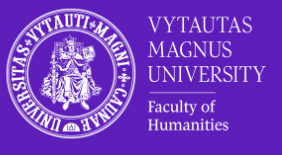Johannes-Gutenberg University
Visa
Citizens of an EU member state, Australia, Iceland, Israel, Japan, Canada, Liechtenstein, New Zealand, Norway, Switzerland or the USA do not need a visa, but a valid passport is necessary. Citizens of other countries need a student visa. They must apply for the relevant visa at the responsible German consulate in their native country or thecountry of permanent residence.
Furthermore students have to prove to the Alien Registration Office that they are able to finance their stay in Germany. Therefore they need to furnish a private confirmation that they can finance their stay (for example a bank affidavit, or an affidavit supplied by family), or a Letter of Financial Support stating the amount of your stipend, or a statement, in German, of the status as an exchange student, issued e.g. by the home university.
Students will need about 1.600 € in cash for the first days in Mainz, because certain necessary expenses occur, like the first rent and a deposit (two months’ rent), the social fee of JGU, the health insurance and of course daily life expenses.
Cost of living
To study and to live in Mainz is relatively expensive. Students have to expect to need 600 to 750 Euros per month; including rent, food, learning aid, health insurance, clothes, communication, mobility and leisure time. It is possible to pay with all common credit cards, but most shops, restaurants and bars only accept them, if the bill is over 20 €. Therefore it is advisable to always carry some cash. At JGU students can pay with the Studicard for snacks, drinks and lunch (see Studicard).
On a positive note, students do not have to pay for buses and the tram because these costs are included in the semester fee.
Health insurance
Students have to submit proof of their insurance on the day of enrolment. Following the Social Insurance Agreement between Germany and all EU countries (plus Norway, Iceland, Switzerland and Liechtenstein), students from these countries can be exempted from the insurance requirements in Germany.
This is only possible for students who are insured privately or publicly in their home country either on their own or via their parents’ insurance, and who bring the EHIC (European Health Insurance Card) with them to Germany.
Students from outside Europe can be exempted from mandatory health coverage if they have proof of health insurance coverage at home which is also valid in Germany. It is strongly recommend to take out insurance in Germany, since cost reimbursement can take a lot of time with foreign insurance companies.
Students who cannot be admitted to public health insurance, such as students over thirty years should take out private health insurance instead. It can be taken out in Germany and in the students home country (Students need to ask for an international health insurance!)
If a student is already privately insured on his/her own or via his/her parents in his/her home country, the student will have to have his/her insurance company issue a confirmation of this insurance coverage to his/her in either English or German. This confirmation must detail the exact coverage provided by the insurance, for example the period of validity, and the amount of financial coverage.
If the private insurance does not include coverage abroad, the student will have to take out insurance with one of the German insurance companies, at a cost of about € 60 a month for students.
Housing
For a room/apartment near university, students have to pay a monthly rent of around 300 to 400 €. Another option, which we would recommend, is to rent a room in a student hall of residence for 250 to 400 € per month. To apply for a room in a student hall of residence students have to present their JGU- matriculation certificate.
Possible residences are the following ones:
-
Student Union (2800 rooms in 10 halls of residence)
-
Protestant Student Center (127 rooms)
-
Catholic University Congregation (57 rooms)
-
Studentenwohnheim Rhein-Main e.V. (71 rooms)
-
Vegis (797 rooms in four halls of residence)
-
Schöfmann private student residence (25 rooms); Address: Backhaushohl 43, D-55128 Mainz, Tel. +49 6131 222085
Once students moved to Mainz, they have to register with the public administration office (“Bürgeramt”).
Semester fee
Students have to pay a semester fee. It is around 250 € and includes sports programs and the Semesterticket, which students can use to travel in and around Mainz for free.
Studicard
Meeting Places
JGU has many refreshment facilities around campus. First of all there is the central student canteen (Staudingerweg 15), where students have the opportunity to eat and buy lunch at student discount prices. For snacks, JGU has three cafeterias:
- Cafeteria in the canteen, the so–called Mens@ria, Staudingerweg 15
- Cafeteria in the Law and Economics building, Jakob-Welder-Weg 9
- Cafeteria in the Philosophicum, Jakob-Welder-Weg 18
Furthermore JGU has the Kulturcafé, the Baron, Imbiss Diwan and Dede’s Campus Döner, where students can have breakfast, lunch and even dinner. Especially the Kulturcafé and the Baron offer freshly prepared and healthy dishes. In addition to that, the Kulturcafé hosts regular cultural events, which are very popular among students.
Sport
JGU offers a wide range of sports. Every student can choose from the sports program, which is provided by the general university sport (AHS). Mostly students do not have to pay an extra charge because it is included in the semester fee.
Mobility
Mainz has a very large bus and tram network. Students can use every bus, tram and local passenger train at every hour. The ticket is the Semesterticket, which will be given to the students with the matriculation certificate. It is very important to always carry the ticket and an identity card, otherwise one is not allowed to use buses and the tram and therefore has to buy a regular ticket.
The Semesterticket covers a large area, so students can travel with it not only in Mainz, but also in Wiesbaden, Frankfurt and many other cities nearby.
Culture
Mainz has some theatres people can visit. For students the visit of the Staatstheater is free of charge. In addition Mainz has many museums, for example the Römisch-Germanische Zentralmuseum, the Landesmuseum Mainz, the Museum für antike Schifffahrt, the Gutenberg-Museum, the Bischöfliche Dom und Diözesanmuseum, the Mainzer Fastnachtsmuseum and the Kunsthalle Mainz. Furthermore, Mainz has the famous Chagall-Windows, which are part of the Stephanskirche.
Clubs
Mainz has a wide range of clubs, for example schonschoen, Star, the 50°, the Red Cat, the KUZ (Kulturzentrum Mainz), the Alexander the Great or the Caveau. Especially on Wednesdays, when the admission is free, many students visit them.
Festivals
The students of the Master-Program visit Mainz during the summer term. That is great because Mainz offers some great festivals and events during that time, for example:
- May/June: Open-Ohr-Festival (a music-festival);
- May to September : Mainz lebt auf seinen Plätzen (cultural programm);
- Juni: Johannisnacht (folk festival).
Shopping
Almost at every corner one can find a supermarket or a drugstore, so it is no problem to buy daily products like food etc. Supermarkets like Aldi Süd, Norma, Lidl, Penny and Netto are relatively low priced. If one would like to buy only organic food, Mainz has a few wholefood shops, lile Alnatura and denn’s Biomarkt, which are located in the city center. There one can also find many shops for clothes and accessories. If one would like to go on a big shopping tour, Frankfurt is the city to be. It only takes 40 minutes by train.












